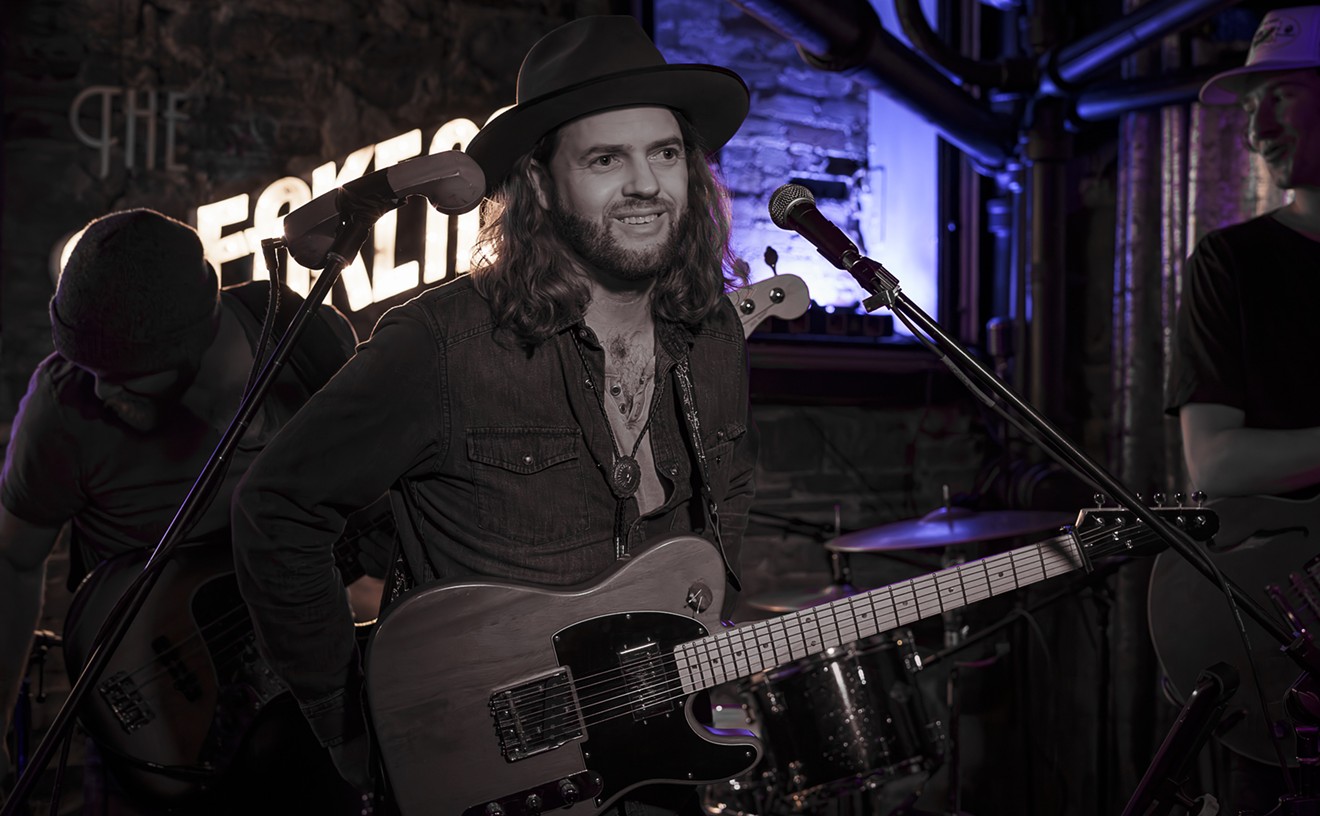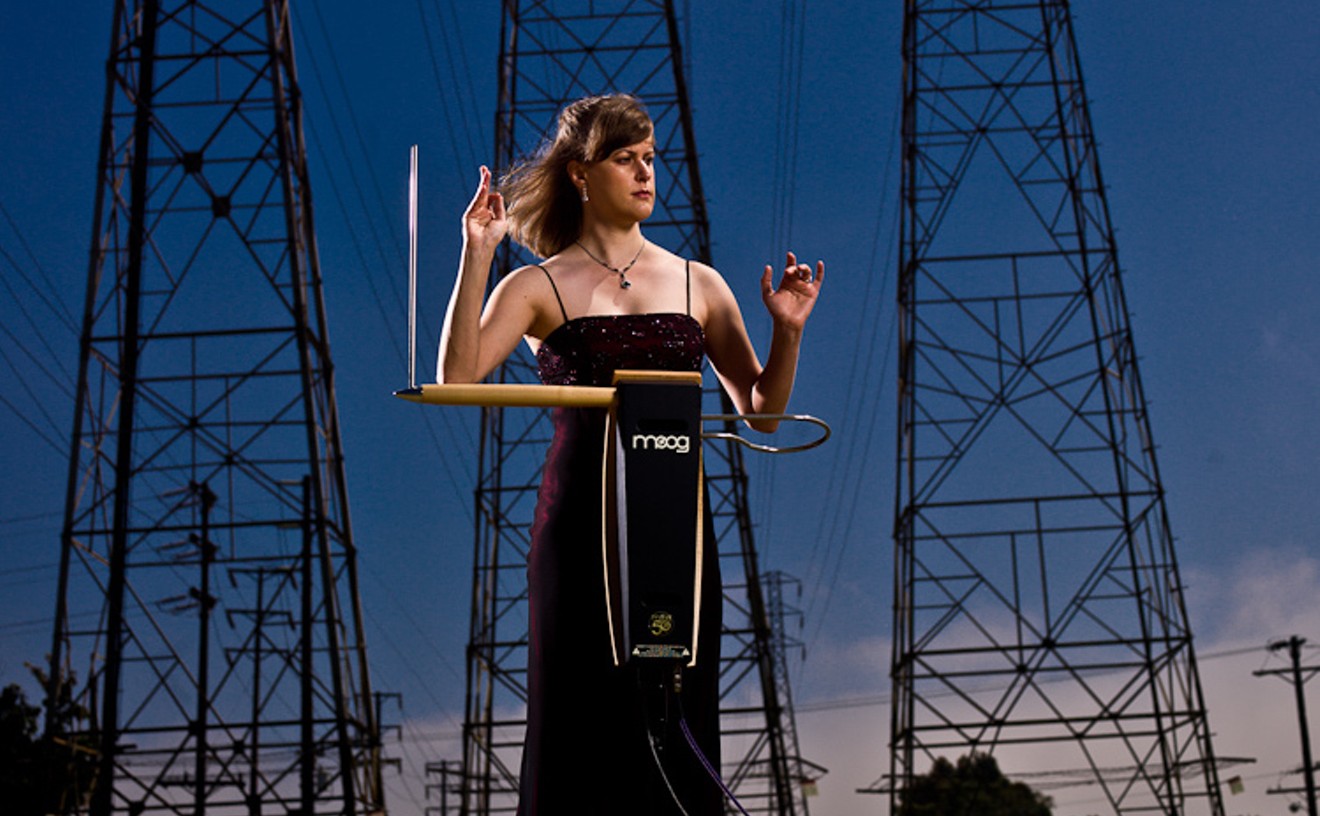Jam. Band. Apart, these two words are innocuous. Put them together, though, and for whatever reason, they become instantly polarizing. Whenever the subject of jam bands comes up, it seems to send some people into a frenzy of dogmatic snideness. In some cases, you get the sense that they'd almost rather you say their favorite band sucks than label it as a jam band. So why the stigma? Well, to answer that, we've probably got to go back to beginning.
See also: The ten biggest jam-band scene stereotypes
The Grateful Dead created the sound and were essentially the architects of the scene, and when Jerry Garcia died, in 1995, a huge group of people were left wondering what was next. As a result, many bands gained new fans looking for other free-feeling live-music experiences.
By the end of the '90s, many jam bands were at the top of their game -- bands like Phish, which had grown big enough to be playing large summer sheds, and groups like the Dave Matthews Band and Blues Traveler, which had tons of radio hits and went on huge tours of their own.
Bell-bottoms and '70s fashions also enjoyed a resurgence, and kids all over the country were rocking hemp chokers and Birkenstocks, wishing they were older so they could have seen the Dead in their heyday. It was actually cool to listen to jam bands for a minute there.
Fast-forward about a decade, and some jam bands have incorporated electronic music into their sound, staying up to date with what's going on in the music scene as a whole. Many have coined the sound as "jamtronica," a term meant to hold allegiance with the jam scene but nodding to the fact that it's something a little different now.
As more electronic-music listeners and a younger generation began listening to these jamtronica acts, there was a noticeable difference in the way the fans dressed. Neon dominated the apparel, along with anything else that lit up; the guy in patchwork pants and tie-dye now looked dated and corny at his own party.
But somewhere along the way, it was more than the look that began to be shunned; it was the whole jam-band scene that was being smirked at. People who saw Dave back in the day now laughed at the people who seemingly hadn't grown, who were still chasing the dream. The words "jam band" instantly evoked bad hippie clothes and other cringe-inducing things about the culture that should've been left in the past.
The problem with this sort of thinking is that the jam-band scene did evolve, and it's still bustling. There is no shortage of talented musicians who prefer to improvise on stage as they blend genres and take the audience and themselves on a total sensory experience. If you looked at a picture of the guys from Lotus, for instance, you would see that they dress more like a band from Brooklyn than a band from Woodstock.
The point is, there is still a very real stigma attached to jam bands, and much of the criticism directed at the scene isn't even relevant. Not in 2014. Archaic fashion doesn't dominate the scene these days any more than all jam bands are making music that amounts to uninspired, noodle-y wankathons. Psych-rock bands are steadily making their way onto the scene -- a scene that is already plenty steeped in psychedelia, by the way. Likewise, funk bands don't have a stigma on their own, and yet many jam bands that bring the funk hard are victims of it. So why the disconnect?Hard to say, but refreshingly, it seems like the stigma is starting to fade, at least a bit, thanks to a group of artists who are breaking down the barriers, including Stephen Malkmus, whose new solo album nods to the scene; the National, which is coming out with a Grateful Dead tribute album full of indie-rock acts; and Animal Collective, which samples the Dead.
Whatever the case, at the end of the day, it's up to the fans to embrace the term and look past the snickering. Maybe one day everyone will realize that they are making fun of something that is actually fun, cooperative and has the ability to melt your face off like few musical genres can.
This isn't just a scene trying to relive the glory days of the Grateful Dead; we all know that's in the past and things just can't work like that again. Rather, it's a vibrant scene of talented musicians, knowledgeable and passionate fans and an unmistakable freedom of self: Jam-band fans get lost in the music and actually seem to enjoy themselves.
And, really, what's to hate about that?
• BACKBEAT'S GREATEST HITS • - The fifty best rap lyrics of all time - The ten biggest concert buzzkills - Five more concert buzzkills - From Phish to Floyd, the ten best light shows
Follow @Westword_Music










